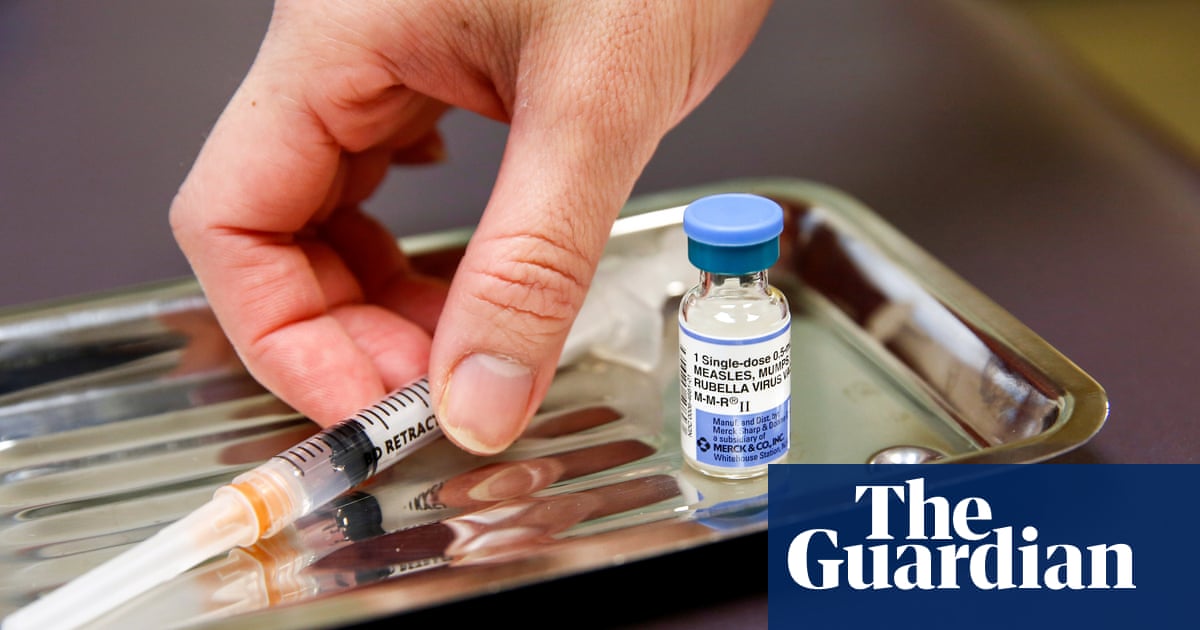
The NHS is facing pressure to redistribute tens of thousands of vaccine doses nearing expiry as demand from younger adults drops.
An internal email seen by the Guardian warned of 170,000 doses of the Moderna vaccine at risk of expiry within the next fortnight, as doctors across England have raised alarm at the unpredictability of vaccine take-up among young people meaning more doses will go to waste.
The government is to unveil a raft of new initiatives to increase vaccine uptake among young people, including discounts on car-hailing companies such as Uber and Bolt, as well as the delivery service Deliveroo.
It is understood the NHS has managed to redistribute 40,000 of the spare Moderna jabs. However, concerns have been raised about the number of jabs wasted as uptake slows among younger people eligible for the Moderna and Pfizer jabs.
The Joint Committee for Vaccination and Immunisation recommends an interval of eight to 12 weeks between doses, initially as a way to offer more people first doses because of limited supply, but studies have since shown that the larger gap could give longer protection.
One NHS doctor in the north-east, Dr Alison George, said colleagues had been forced to routinely discard Pfizer doses, rather than give second shots early to people who requested them. “We have very high rates of infection here and the local hospital is already under significant pressure with some elective surgery cancelled,” the GP said.
“Wastage at this stage of unlocking is wholly unjustified and to turn young people away as well is, in my opinion, completely unforgivable.”
Dr Rosemary Leonard, an NHS GP, tweeted last week that doctors were keen to be able to give the jabs earlier to avoid wastage. “Please, please, could young people be allowed to get their vaccines earlier than eight weeks. Numerous colleagues telling me of 100s of doses being thrown away, yet ‘early requesters’ at clinics being turned down.”
“I’ve heard of one clinic having to bin 1,000 doses of Pfizer cos it had expired, yet turning people away for second dose.”
Leonard said that because GPs were mostly no longer running clinics, pop-up centres often had no discretion. “Unlike GP-led clinics, no one dares make commonsense decisions,” she tweeted.
Beccy Baird, a senior fellow at The King’s Fund, said it was getting more difficult to predict vaccine uptake.
“Uptake is getting lower as the cohorts get younger and matching the supply of vaccines to demand will get harder as demand becomes less predictable. This is made all the harder as the vaccines have a limited shelf life,” she said.
“Making sure that everyone who wants and needs a vaccine can access both doses at the right time, and at a convenient location, is a complex task on a huge scale and it’s testament to all those involved in the vaccine programme that so many people have already received both doses.
“In the early stages of the rollout, you could be confident that wherever vaccines were delivered there would be sufficient demand for them. Now that a majority of adults have been vaccinated, and with uptake getting lower as the cohorts become younger, demand for the vaccine is more unpredictable, making it harder to know exactly where the doses are needed.“
An NHS spokesperson said: “The NHS is continuing to encourage vaccine uptake among young people by jabbing at convenient locations and popular destinations, including Thorpe Park and Latitude festival as well as community hubs at places of worship and shopping centres.
“There is plenty of vaccine supply and everyone aged 18 or over is now eligible for a lifesaving Covid jab, which is why the NHS is urging people to come forward as soon as possible to protect themselves and their loved ones.”
Pfizer and Moderna vaccines are now mostly distributed to the under-40s, who cannot receive the AstraZeneca vaccine. Those vaccines have a shorter shelf life of up to one month in the fridge, compared with the AstraZeneca vaccine, which can last for up to six months.
Though Pfizer and Moderna doses can be administered at an interval of just three weeks, studies have shown that an eight- to 12-week interval can offer greater longer term immunity against Covid-19.
The UK is to distribute 9m doses of the AstraZeneca vaccine to poorer countries from this week, though concerns have been raised that those doses are also nearing expiry, putting pressure on developing countries’ healthcare systems to distribute the doses in time.












